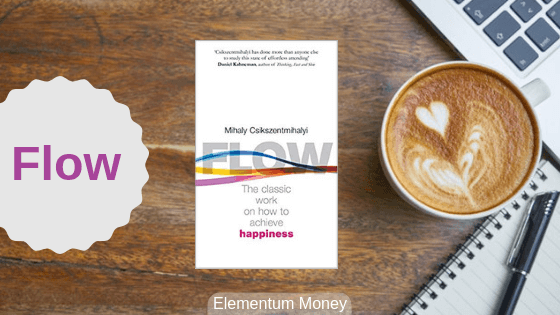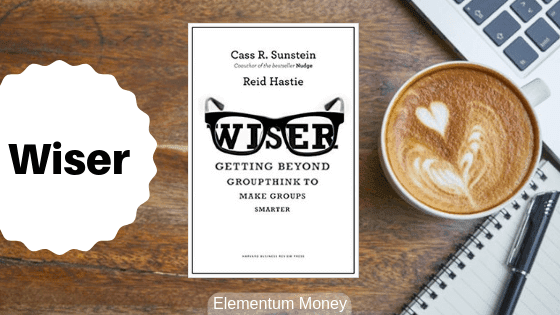One of the books that inspired me deeply last year was Carl Newport’s fantastic book Deep Work. It made me far more conscious of reducing multi-tasking as well as trying to get a grip on my attention and consciousness. When talking about Deep Work, one of the books admiringly mentioned by Newport was what I later came to know, a legendary book called Flow written by Hungarian-American psychologist Mihaly Csikszentmihaly.
I was able to lay my hands on that book and realized that while it was published decades back, the learnings in it are pretty much timeless. A lot of things I have now come to accept like leisure needs to be productive and being mindful while doing anything were reiterated in it. The book is vast in scope with many actionable points. I decided to touch upon a few main points in this post. Treat this as a trailer as the real movie (the book itself) is far more rewarding.
Who is Mihaly Csikszentmihaly?
Mihaly Csikszentmihaly struck me as a personification of the American Dream. Born in 1934, as per Wikipedia, his early life seems to be quite chequered with a life as a diplomat’s child in the Hungarian Consulate, experiencing the deaths of two half brothers and a plunge into starting life from scratch after his father’s expulsion from the Communist regime to restart life with a restaurant in Rome. In this TED talk, he talks about how he saw people during World War II completely lose every shred of the feeling of happiness at losing their house and job. That was a big inspiration for him to study what makes people happy.
What is Flow?
The book states its’ objective as trying to understand what makes humans happy and whether they could structure or create situations around them accordingly. In that context, Csikszentmihaly came up with the idea that humans need to find the ability to find or create flow experiences for themselves.
Csikszentmihaly describes Flow as
“situations in which attention can be freely invested to achieve a person’s goals, because there is no disorder to straighten out, no threat for the self to defend against.”
Mihaly Csikszentmihaly, Flow
At another point, he describes Flow as:
“the state in which people are so involved in an activity that nothing else seems to matter; the experience itself is so enjoyable that people will do it even at great cost, for the sheer sake of doing it.”
Mihaly Csikszentmihaly, Flow
Think back to the recent past. There must have been a point where you were deeply immersed in doing something – physically or mentally, which absorbed you completely and when you were finished you felt a sense of accomplishment, a feeling of ecstasy per se and that of growing as a person. If you are still frowning as though I am talking mumbo jumbo, read on as the post will illuminate what I mean.
Csikszentmihaly researched this concept with a very big sample size using the Experience Sampling Method. Essentially the respondents were given a device through which they recorded what they were feeling. Every day, the device would beep around ten times at regular intervals and the respondents would enter the task they were involved with and the way it made them feel. Over years, a vast data was collected to reveal some very universal traits of Flow.
Eight components of Flow
One of the main parts of the book that I founds enlightening were the eight pointers described by the author as being essential to an experience providing optimal flow to the one actually doing it.
Should be possible
Imagine you embark on a task, with the belief and knowledge that it is not possible to accomplish. The possibility of your being in a state of flow while doing it is pretty low. Yes, there are missions which people embark on that push the boundaries of human achievement, for instance climbing Mount Everest. However, that is done with the full belief of the person involved that it is a task possible to achieve.
In some ways, this feeling of going on mission impossible is what changed my career track. I was studying history during my graduation years, with a mission to decipher the Harappan script. In the first year of college, my professor of the Ancient Indian History course explained to me that there was no other bilingual artefact found and deciphering it would be next to impossible. Now, I could continue believing that I would be the person to find a bilingual artefact and decipher it too or I could recognize that I cannot stay for too long on an impossible task. Seeing my blog today, it should be easy to guess I chose the latter!
Ability to concentrate on it
Believe it or not, the ability to concentrate is not a given. In some ways, it has to be developed consciously and today it is a rapidly eroding resource. This ability is what distinguishes people who are able to enjoy anywhere and in any situation vis-à-vis people who get bored even with the most enviable position in life.
Have you ever been so absorbed in something that you have to be roused out of it? No, sleeping does not count. Today, we often do things
Clear goals
As said in the example above, my goal for pursuing history was pretty clear in my head. Knowing the short term or task related finish line is crucial to achieve a state of flow.
As the author writes, sports is one of the best examples of an activity with clear goals and which most often has its’ practitioner in a state of flow. Here, the goal is not necessarily defeating the opponent but doing things in the right manner. For instance, in tennis, the goal is simply to send the ball over the net and within the box as consistently as possible. In basketball, the goal is to net as many baskets as possible. Such clear goals make it easy for the brain and the body to align itself as one.
Immediate feedback
There are a lot of things or actions we take where the result takes some time before fruition. However, for tasks which have an immediate feedback loop built in, it’s far more possible to get into a state of flow. For instance, you know immediately if you were able to land a shot properly in tennis. You know instantly if you played a note wrong in music. When you read a piece that you have just written, you pretty much know how it makes you feel.
Here, the feedback can be objective like in sports or music where it’s out there in black and white what went wrong and the difference in the effort required. In cases, where feedback cannot be objective, you should ideally have an internal locus of control, ensuring only your own feedback matters to you. If you want to understand the need for immediate feedback, just look around you at the obsession for the likes and engagement on personal social media channels. However, that’s not particularly healthy and can get into a dangerous cycle.
Deep, effortless involvement
This point is more of a mirage and holds true especially for people with a passion, indulging in it after years of experience. For instance, when you look at a sports person or a musician, not only can you see them in deep focus but every movement seems artfully graceful. However, it’s almos like a duck that is calm on the surface and furiously paddling underneath.
Over time, once I do settle in, writing has now started coming to me more effortlessly. It was always a deep exercise but with practice, the seeming effortlessness has just gone up. The more you practice a certain thing with deep involvement, the more effortlessly it will seem to flow.
A sense of control over actions
In this point, the author talks about how people who experience Flow indulge in activities that other people might find too risky or with few control factors involved. However, for those in flow, it is the satisfaction of a sense of control in high risk or high expertise activities.
For instance, most pilots would experience flow while navigating a plane. Is it risky? Yes. But it is the sense of control they feel even in that risk that gives them the feeling of flow.
No concern for self
Ever done any adventure sports? We are willing to risk our lives for that thrill and the absorbing ourselves only in that action for the moment. But, as Csikszentmihaly puts it, Flow experiences happen when we have no concern for ourselves but emerge with a much better understanding of the self.
This point reminds me of the scene from one of my favorite movies Zindagi Na Milegi Dobara where Hrithik Roshan is terrified of the scuba diving adventure that lies ahead but really emerges as a calmer, different person after that. He sure had a flow experience.
Alteration of a sense of time
Ever been so absorbed with something, that when you come up for a breath you realize that time has flown? Or even the opposite, where you are deep into the intricate details of something, only to realize that time seemed to have stopped?
Flow experiences give the feeling of time being altered. You could continue doing something for all eternity or you might have filled so much of your focus and concentration in such little time that the reality amazed you. In college, when I played volleyball, time seemed to be moving on steroids. On the other hand, with my writing it some times takes me a push to get started. But, once I do, I have a habit of typing in Microsoft Word and checking out the number of words and the time. When I do it after long, I realize that my only problem is a faulty spark plug or a starter. After the initial hiccup, it runs pretty effortlessly.
If this felt like an eye opening read with learnings that you could apply to your life, then this book is a must read. This post merely scratches the surface and the book has many many more nuggets of wisdom that we could all benefit with in our lives, for happiness or for productivity.
Have you read Flow? Have you experienced Flow? Let me know in the comments below.





Leave a Reply